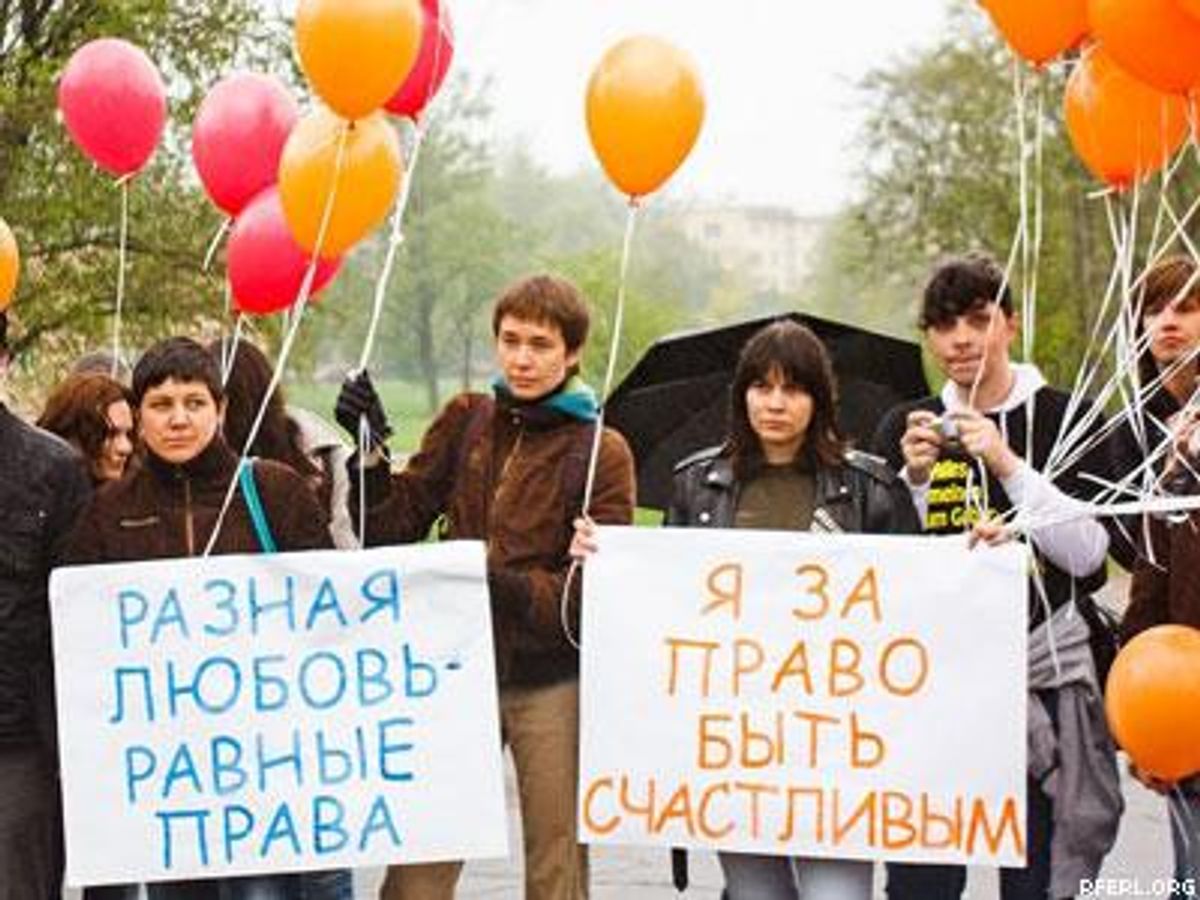LGBT activists in Kyrgyzstan are reaching out to the international community in hopes of averting a disaster that could stem from pending legislation that would rival Russia's draconian antigay law, according to the blog 76 Crimes.
Russia's notorious nationwide ban on so-called gay propaganda makes it a crime to speak, write, or demonstrate in support of LGBT people and equality, claiming such advocacy "promotes nontraditional sexual relationships" to minors. However, the proposed Krygyzstani law would go further.
While Russian lawmakers have claimed the law is necessary to "protect children" from the dangers of homosexuality, the proposed law in the former Soviet nation of Kyrgyzstan law doesn't even try to couch its repression in a faux concern for youth.
If passed, the Kyrgyzstani law would criminalize any positive comments about homosexuality, "sodomy, lesbianism, or any other forms of non-traditional sexual behavior," made through any form of electronic or print media to any person of any age.
LGBT rights activists in Kyrgyzstan, a predominantly Muslim country of 5.6 million people, say they have "exhausted almost all domestic means to stop the bill," reports 76 Crimes. The activists see no other choice remaining but to reach beyond their borders for support.
Kyrgyzstani LGBT rights activists are especially eager to increase pressure on members of the country's Supreme Council or Jogorku Kengesh (equivalent to a unicameral parliament) from non-western countries -- specifically from Latin America and Asia, according to 76 Crimes.
Yet it was a South African LGBT media outlet that appears to be the first to respond to the Kyrgyzstani activists' plea for help. "Gay activists in the Asian nation of Kyrgyzstan are calling for international support as a proposed Putin-style anti-gay law is set to limit the rights of LGBT people," wrote Luiz Barros in Johannesburg-based Mamba Online.
Kyrgyzstan already has a climate of hostility toward LGBT people, noted Human Rights Watch when news of the proposed law first hit in March. At that time, Human Rights Watch called on the Jogoku Kengesh to withdraw the bill.
"This draconian bill is blatantly discriminatory against LGBT people and would deny citizens across Kyrgyzstan their fundamental rights," said Hugh Williamson, the group's Europe and Central Asia director in March. The organization also urged the Parliamentary Assembly of the Council of Europe -- which will consider Kyrgyzstan's application for special "Partnership for Democracy" status with it April 8 -- to "send a strong message that the bill is unacceptable, and make clear that partnership status is wholly incompatible with legislation of this kind."
The Kyrgyzstani activists' plea for help from international supporters of LGBT rights was specific in its call to action, listing five ways ordinary people can help. Those methods include getting the word out on the proposed propaganda ban via social media, direct outreach to elected and appointed officials, and word-of-mouth; organizing town halls, informational lectures and protests; asking donors to review their giving policies toward Kyrgyzstan; imposing sanctions by governments and nongovernmental organizations; and advocacy for better asylum policies for LGBT people from Kyrgyzstan.
According to the CIA's World Fact Book, 75 percent of Kyrgyzstanis are Muslim, while another 20 percent are Russian Orthodox -- while five percent are "other." Russian Orthodoxy and much of the Islamic religious establishment have been driving forces in antigay oppression worldwide in recent decades.













































































